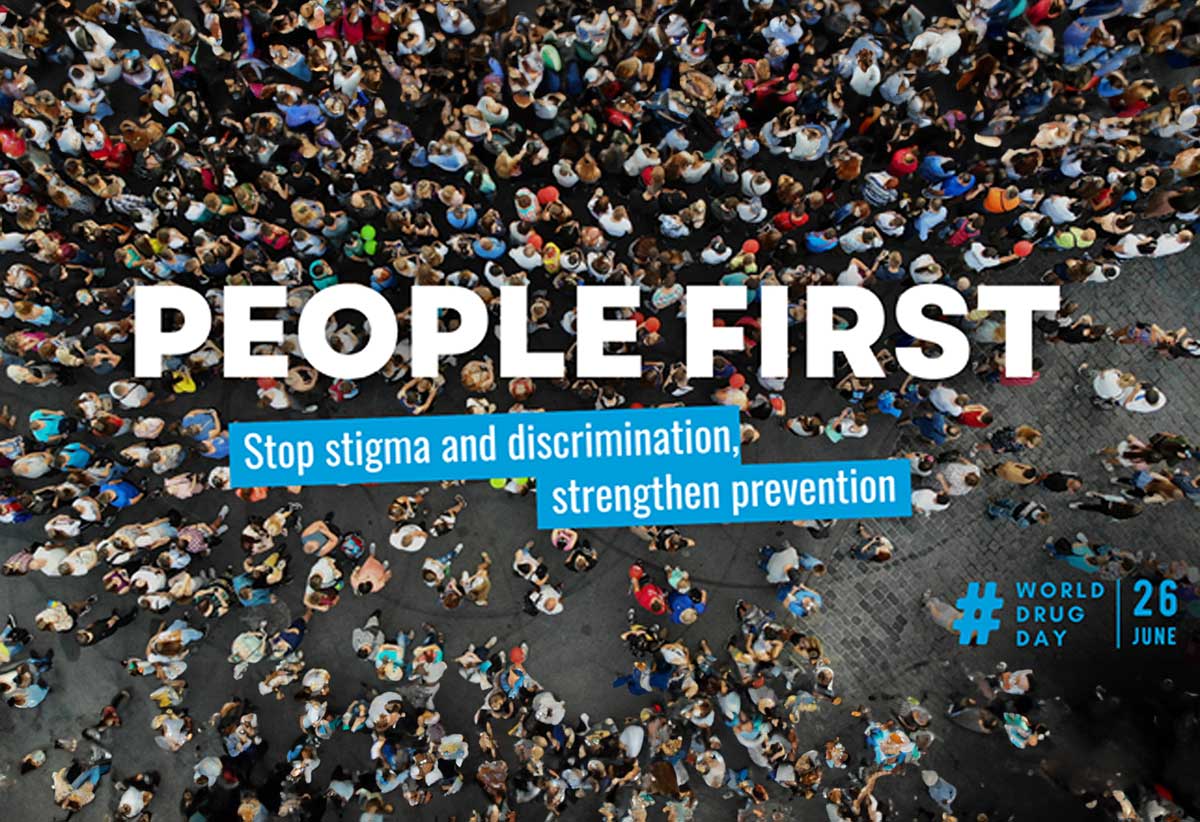
Drug dependency has no favourites. It does not choose its victims by age, gender, race, ethnicity, class or creed. It does not decide to harm one person whilst protecting another. It bears no allegiance to any country or flag, qualification or group. It has no political colour, bank account limit or favoured location.
Substance abuse simply does not discriminate. Humans do.
Monday, June 26 was International Day Against Drug Abuse and Illicit Trafficking, known also as World Drug Day.
National Committee for the Prevention of Alcoholism and Drug Dependency (NCPADD) St. Lucia vehemently supports the 2023 theme, “People first: stop stigma and discrimination, strengthen prevention” with the hope that a culture of respect and empathy will overshadow and overpower stigmatization in any form.
Both illegal and legal substances can be harmful when used inappropriately. They attack the body and the mind and are responsible for a significant number of mental health concerns. Drug dependency is a disease. Stigmatization and discrimination are shameful bullying tactics that can only result in deterring victims of substance abuse from accessing the help that they need. Shaming and incarceration do not prevent nor reduce the use and abuse of drugs or substances but knowledge, compassion and care can.
NCPADD encourages us all to learn more about the physical and mental effects of drug use and abuse. Knowledge is power, drugs are not. Join us as we seek to inspire and empower all to make healthy choices through education, behavioral modification, outreach and advocacy.
Effects of Substance Use and Abuse
For many years people have been using and abusing substances to relax, increase pleasure, get rid of unwanted emotions, and to stay awake or fall asleep.
A substance according to James (2008) can be defined as a psychoactive drug that has a direct and significant impact on the process of the mind with respect to thinking, feeling and acting. Substances are classified as legal drugs ( e.g., alcohol and medication) and illegal drug (e.g., crack, cocaine) and can be categorized as depressant drugs, stimulants, hallucinogens, and cannabis.
Depressant drugs are substances such as alcohol which slow down the activities and functioning of the central nervous system. Stimulant drugs are substances such as crack, cocaine, and caffeine which increase the activities of the central nervous system, blood pressure, heart rate and alertness.
Hallucinogens are substances such as lysergic acid diethylamide (LSD) and ecstasy that cause hallucinations – seeing and hearing things which do not exist. Cannabis (marijuana) is derived from the hemp plant and is a stimulant and a depressant drug. In low to moderate doses, it causes mild sedation whereas in higher doses it may increase the blood pressure and heart rate as well as produce euphoria and hallucination.
Although some substances may have some positive effects on the body, research has shown that their use and abuse do have some harmful consequences, particularly on the youth. Some of those effects include performing poorly academically, frequent absenteeism or dropping out from school, and frequent conflict with peers and persons in authority which may lead to inappropriate anger outburst, fights or other violent behaviors.
Substance use may contribute to an individual experiencing ill health, such as liver diseases, ulcers and brain deformity. It increases the likelihood of accidents and sustaining or causing serious injuries or physical disabilities, particularly when driving, using equipment or performing tasks at work.
Furthermore, the use of substances may cause mental health problems. These include having episodes of depression which involve feelings of hopelessness, helplessness, sadness and irritability. These may contribute to suicidal ideation or suicidal attempts. Substance use may also cause confusion, delusions, insomnia, hallucination and anxiety.
Finally, there are many social and economic consequences for the use and misuse of substances. A substance abuser may not be able to maintain or find employment which can result in engaging in criminal activities such as drug trafficking, prostitution, stealing and even homicides to facilitate the substance abuse habits. Substance abusers are also more likely to be neglectful or abusive towards their families.
NCPADD discourages the use and abuse of such substances at all costs. Remember – Prevention is the Cure!













